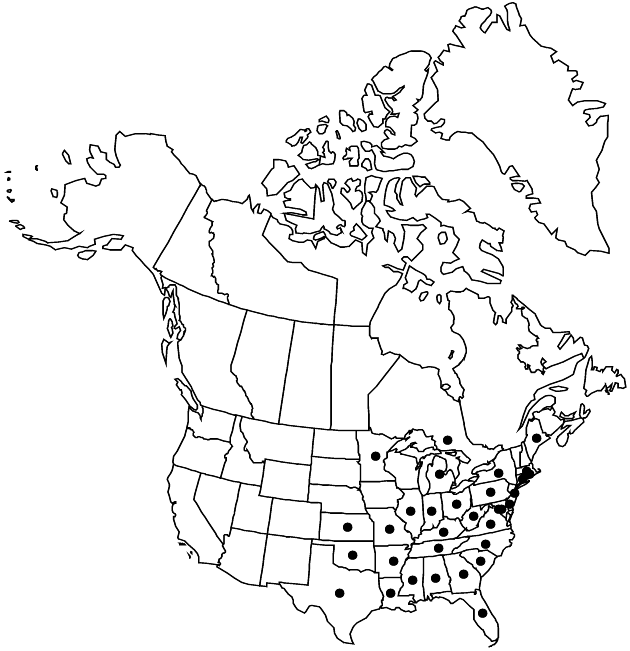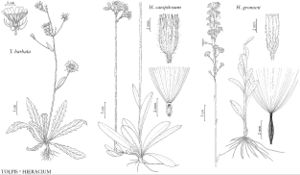Hieracium gronovii
Sp. Pl. 2: 802. 1753.
Plants 30–45 (–80) cm. Stems proximally piloso-hirsute (hairs 2–4+ mm), sometimes stellate-pubescent as well, distally stellate-pubescent, sometimes piloso-hirsute as well. Leaves: basal 0 (–2+), cauline (3–) 6–12+; blades elliptic or obovate to oblanceolate, 20–35 (–90) × 10–40 (–50) mm, lengths 2–4+ times widths, bases cuneate to rounded (sometimes ± clasping), margins entire, apices rounded to acute, abaxial faces piloso-hirsute (hairs 2–4 mm) and stellate-pubescent, adaxial piloso-hirsute. Heads (5–) 25–50 in usually narrow, thyrsiform arrays (lengths of arrays usually 3–6+ times diams., sometimes shorter). Peduncles stellate-pubescent and stipitate-glandular. Calyculi: bractlets 8–12+. Involucres cylindric to campanulate, 7–10 mm. Phyllaries 12–15+, apices rounded to acute or acuminate, abaxial faces glabrous or stellate-pubescent, rarely stipitate-glandular as well. Florets 12–20+; corollas yellow, 8–9+ mm. Cypselae urceolate, 3.5–4.5+ mm; pappi of ca. 40+, stramineous bristles in 2+ series, ca. 5 mm.
Phenology: Flowering (Mar–)Jul–Sep(–Oct).
Habitat: Openings in pine and pine-oak woods, bogs, sands
Elevation: 30–600 m
Distribution

Ont., Ala., Ark., Conn., Del., D.C., Fla., Ga., Ill., Ind., Kans., Ky., La., Maine, Md., Mass., Mich., Minn., Miss., Mo., N.J., N.Y., N.C., Ohio, Okla., Pa., R.I., S.C., Tenn., Tex., Va., W.Va., Mexico, Central America
Discussion
Selected References
None.
Lower Taxa
"fine" is not a number.
